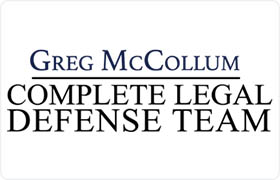Horry County, SC Criminal Lawyers, page 4
Sponsored Law Firm
-
 x
x

Click For More Info:
-
Greg McCollum Complete Legal Defense Team
1012 38th Avenue North Suite 202 Myrtle Beach, SC 29577» view mapCriminal Defence Law Complete Legal Defense Team
Our goal at the Complete Legal Defense Team is to examine the facts and circumstances completely and help our clients.
800-634-0690
James Joseph Murray
Real Estate, Lawsuit & Dispute, Divorce & Family Law, Criminal
Status: In Good Standing Licensed: 61 Years
Jacob Leon Parrott
Criminal, Personal Injury, Wills & Probate, Accident & Injury, Estate
Status: In Good Standing
Roland Bradley Yates
Criminal, Car Accident, Felony, Divorce, Workers' Compensation
Status: In Good Standing Licensed: 12 Years
FREE CONSULTATION
CONTACTFREE CONSULTATION
CONTACT Greg McCollum Myrtle Beach, SC
Greg McCollum Myrtle Beach, SC AboutGreg McCollum Complete Legal Defense Team
AboutGreg McCollum Complete Legal Defense Team Practice AreasExpertise
Practice AreasExpertise